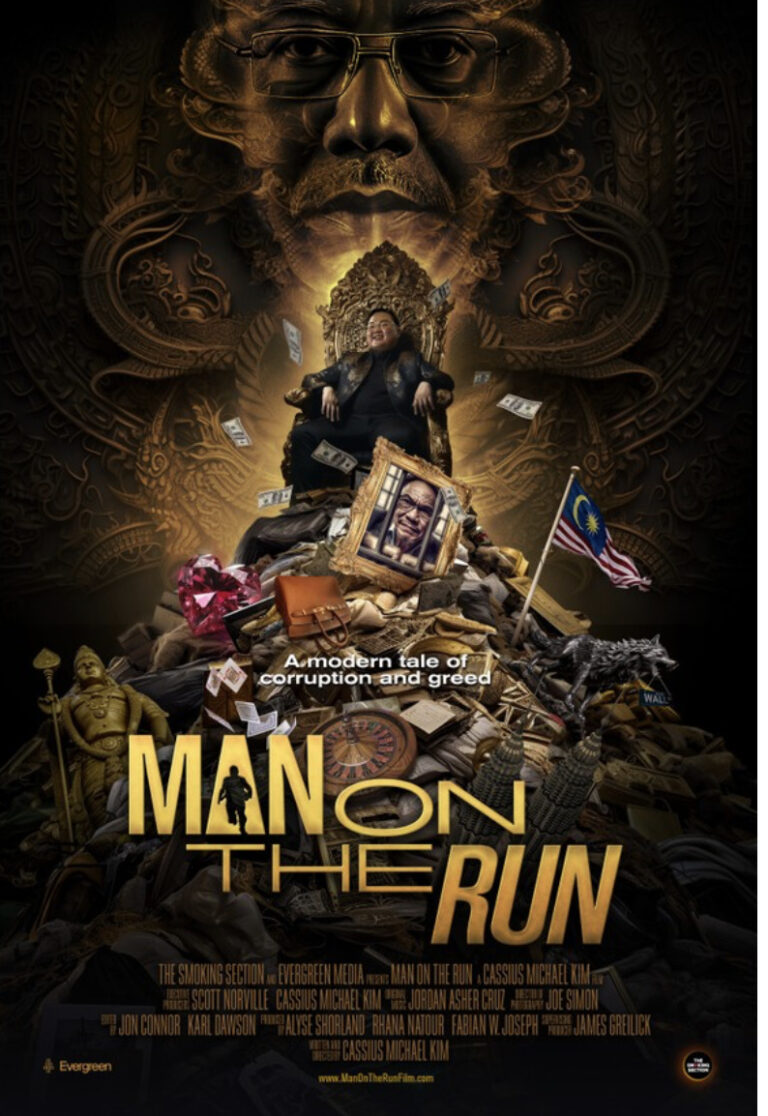
MAN ON THE RUN uncovers the shocking true story of a corrupt group of co-conspirators who jeopardized a country’s hope for financial stability. Their influence extended from the highest levels of the Malaysian government to the glamorous enclaves of Hollywood.
At the heart of this scandal lies the enigmatic Low Taek Jho, known to most as Jho Low, a mysterious businessman, and notorious playboy. Teaming up with Prime Minister Najib Razak, Low orchestrated a scheme to exploit 1MDB, a sovereign wealth fund established in 2009 with the noble purpose of benefiting the people of Malaysia. In 2015, intrepid journalist Clare Rewcastle-Brown received leaked financial documents, setting off a global investigation that uncovers a staggering amount of money being channeled into international bank accounts, all in support of Low’s extravagant lifestyle. This includes the acquisition of lavish properties, a private jet, a yacht, excessive A-list celebrity parties, and even the financing of the Hollywood blockbuster film, “The Wolf of Wall Street.”
Through the meticulous work of director Cassius Michael Kim, who gains unprecedented access to key individuals involved on both sides of the story, MAN ON THE RUN unravels a complex web of greed and corruption. It delves into gripping first-person accounts, unveiling the extensive repercussions of one of the most colossal financial scandals in history.
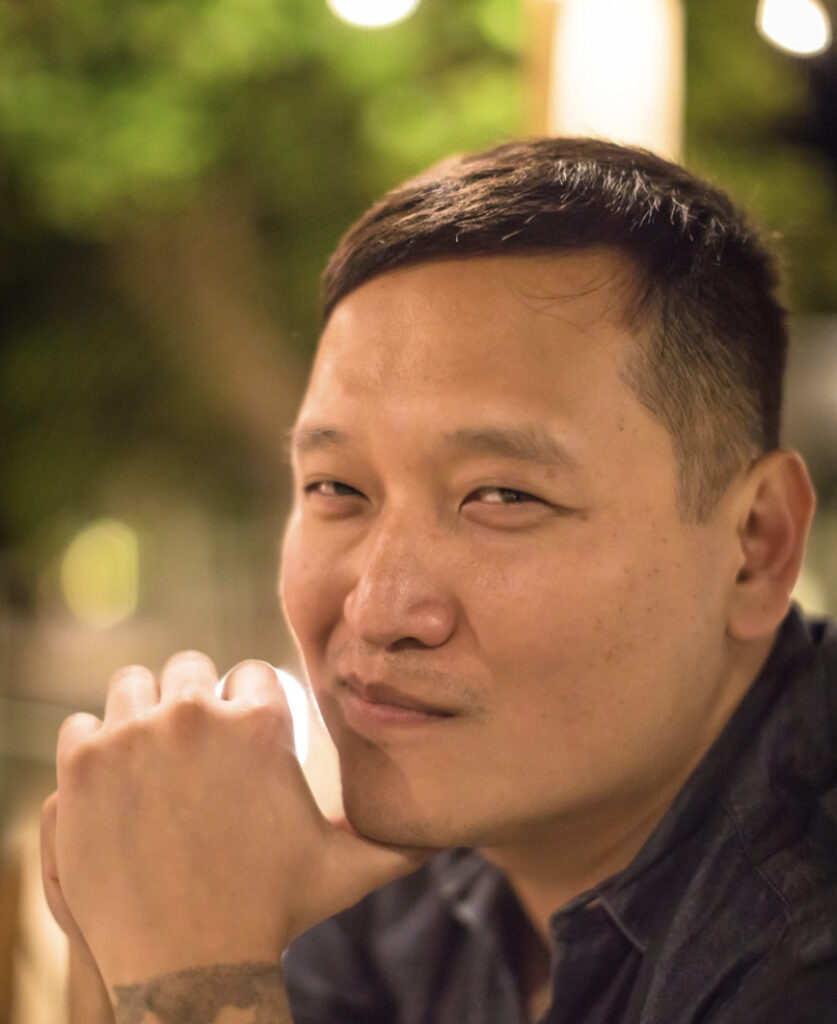
Exclusive Interview with Director Cassius Michael Kim
Q: Jho Low is still on the run. How did you map out the structure of this film? What was your starting point?
Cassius Michael Kim: It’s a very complex, layered story where the primary antagonist is missing. Behind him, there’s a vast web of co-conspirators. So using him as the front, we started digging and saw what was behind him, what enabled him, who empowered him, and what were the levers of power he pulled to make sure he could activate this conspiracy. You try to talk to as many of those people as possible.
Q: Ostensibly, 1MDB had a development plan, a plan that was intended to raise the money to help the development of the infrastructure of Malaysia, which obviously was a good intention. I believe Najib was at that point was minister of defense.
Cassius Michael Kim: That was later on. When 1MDB started, he was the prime minister and finance minister.
Q: Najib’s family is referred to as almost like the Kennedys of Malaysia. How much greed came from how well connected he is?
Cassius Michael Kim: It’s a classic story. You see it all around the world. The wealthy always want more. The capacity of their appetites is unmeasurable and with any story like this, you see rich people trying to get richer. You see it every day in America. You see it in countries all around the world. I don’t think any of that makes Najib Razak or his family unique in any way. They’re just greedy people who decided that their well-being and excess was more important than the well-being of the people they were supposed to serve.
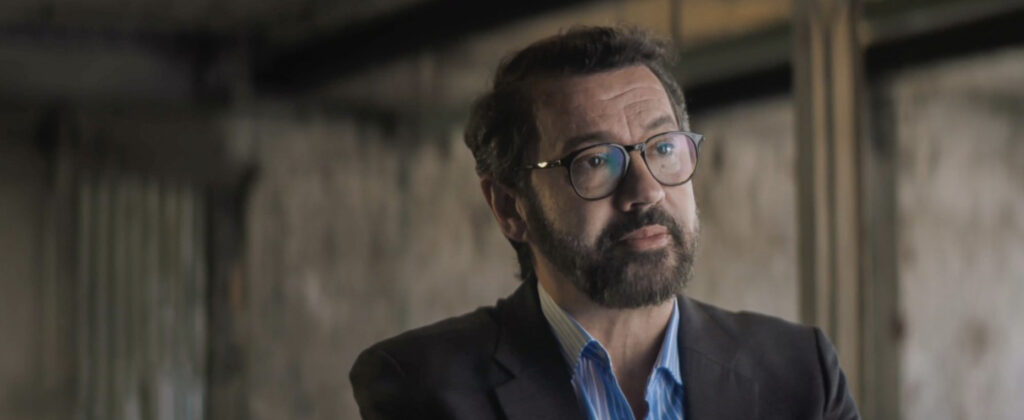
Q: It’s really mind boggling to think how someone can transfer $681 million into a private bank account just like that! It would be so easy to get caught, don’t you agree?
Cassius Michael Kim: It speaks to the arrogance of the people involved. That arrogance is apparent to any outside observer who really takes a closer look at what happened. Secondly, I think it speaks to this lack of an exit strategy that any of them had to sustain a fraud. You have to have the resemblance of a legitimate business.
Otherwise, it’s apparent to everybody that this is a fraud and a crime in progress. But at no point, does Najib Razak ever endeavor to have an exit strategy or some kind of mechanism in place to cover their tracks. Once again it goes back to the arrogance involved, right? They just thought they could do whatever they wanted and get away with it. Luckily, for the rest of us, that proved not to be the case, even though so many of the other people involved have not been held accountable.
Q: Could you talk about the authority of asset countries like the Middle East such as Saudi Arabia or Kuwait to have access to the government’s money and invest in business projects and deals like that.
Cassius Michael Kim: We’re seeing the influence of the sovereign wealth funds every day. Liv Golf, which is financed by Saudi Arabia through their development fund, has changed the very face of the pro golf scene. A number of English premier league clubs have been purchased by these Middle Eastern development funds. Qatar purchased Paris Saint Germain. That has also created this arms race in European football because of the unlimited money backing these clubs. Ostensibly, that’s what 1MDB was trying to do when it strayed from its original mission of improving infrastructure.
The back story is that they came up with why they invested in “The Wolf of Wall Street.” They saw it was a good investment, yes, but the big difference between these Middle Eastern development funds and 1MDB was that Malaysia doesn’t have excess money to throw around. Middle Eastern countries with all their oil money, have excess funds. But in Malaysia, they accrued debt to finance their sovereign wealth fund. They’re already starting from a hole, taking on interest payments to fund investments. You have to make the assumption that your investments can outpace the interest payments you’re paying on the money. But that was never a consideration because they were always planning on stealing the money. The sheer audacity of this is mind blowing.
Q: Talk about the connection between Jho Low and Najib? How did they connect in the first place? That’s from Najib’s stepson, Riza.
Cassius Michael Kim: Both Jho Low and Riza Aziz Najib’s stepson — with his wife Rosmah — attended school in London where they became friends. Jho Low was always kind of a collector of important people — various Middle Eastern princes who attended school with him. Then Jho Low went to Wharton School of Business. He tried to utilize all these connections that he had made to create a little empire for himself. 1MDB wasn’t his first foray into this. He had a number of other companies that he tried to install, that all took part in some very shady business dealings. That was a repeated pattern of behavior that he consolidated until he could build himself a resume worthy enough to approach the Prime Minister and say, “Why don’t we do this?”
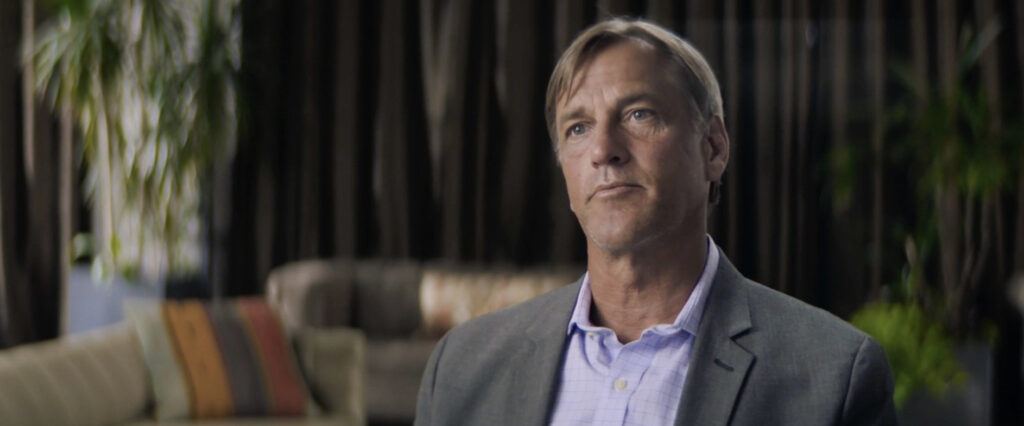
Q: If this case didn’t involve the FBI, do you think it would have a totally different impact or outcome?
Cassius Michael Kim: Very clearly, without the involvement of the FBI and the DOJ, I think this case would have died. It would not have been brought to fruition after 2015 in “The Night of the Long Knives” as Malaysians called it. When Najib Razak cracked down on all the internal investigations that were taking place in Malaysia, he fired the attorney general, he imprisoned the press that were investigating him. There was very little recourse left to the people who wanted to bring him to justice.
Luckily, those people, who we mentioned in the film, do not appear for a number of reasons. They had no outlet, their institutions were crumbling but they had the wherewithal to utilize their connections in the FBI –very specifically Chuck O’neal and Dave Smith, who both appear in the film, were FBI legal attache officers in Kuala Lumpur. They funneled sensitive information back stateside to American investigators who were then able to build the civil forfeiture case that the DOJ brought to 1MDB. And even then though it wasn’t a criminal action, it was that civil case which then allowed Malaysian officials to do their part to kick him out of office. At that point, the investigations were revived and he was arrested and brought to jail.
Q: Some of the billion dollars stolen from the government in Malaysia was used to fund the movie “The Wolf of Wall Street” which ironically was about greed and access to money to make somebody invincible in a way. After this incident, how did Leonardo DiCaprio and other staff members react to this whole incident?
Cassius Michael Kim: The movie was made with dirty money. That’s incontrovertible. As a result of that, all its profits made from that film were seized by the US government for return to the government of Malaysia. Concurrently, Leonardo DiCaprio, among the many other celebrities who received millions of dollars from Jho Low to hang out with them for a number of years… A lot of that money and gifts have been seized and returned. The FBI agents who investigated the case interviewed DiCaprio and he was just like, “I don’t know anything that happened, please take everything.” There’s enough plausible deniability and he did give up everything he was given. He was able to wash his hands of it.
Q: The movie was already done by that point. So there’s no change of actual money with the money coming from everything.
Cassius Michael Kim: The money stolen from Malaysia paid for the movie and then the movie made a lot of money, but that money was seized and given to Malaysia.

Q : What are the challenges of shooting this film, are there any life threats?
Cassius Michael Kim: I didn’t feel like we were in danger at any point. The primary challenge of making the film was when we wanted to enter Malaysia to do our filming. The country was still closed due to the pandemic. So we had to negotiate and back-channel with Najib Razak’s people who still had contacts in the ruling government to get us access. Navigating the pandemic-related hurdles and receiving our visas took some effort.
Once we were in Malaysia, we operated under the assumption that we’re being followed. They were keeping an eye on us. In fact, when we’re in the waiting room at the immigration office, there was a several hour wait. We’re just sitting there waiting for our papers to be processed and I receive a text message from Najib Razak’s advisor who sends us a picture from the CCTV in that office, a picture of us that very clearly stated that they knew where we were and what we were doing.
That was a bit of an implied message. I thought that set the tone for our time there. But, once you’re in it, you’re in it. You can’t operate under any kind of fear or worry about that kind of thing. We’re journalists and we’re trying to tell a story. We were consolidating all the stories and shining a light on the work of people that came before us who actually were in danger. I don’t want to minimize the threats that were faced by people like Claire Rewcastle Brown, Bradley Hope and Xavier Justo who went to prison for releasing the data from PetroSaudi. There’s a story that’s out there already and our job is to put it comprehensively into a package that’s easily digestible for people.
Q: How did you get granted the interview with former prime minister Najib Razak? What was your impression of him after your interview?
Cassius Michael Kim: to make sure we would be able to sit down with him, it was a long process. The interview didn’t happen until I think the day before we left Malaysia. Even the whole time we’re in Malaysia, it was a constant negotiation of when he would sit down with us. It involved multiple meetings with his advisers and lawyers. I met him when we first got there. I rode with him to court. We just had a nice little chat which got us acquainted and then we embedded with his traveling party to cover his campaigning in Penang province.
He’s a charming man, a professional politician who believes what he says. But he’s someone who was under a tremendous amount of pressure. I didn’t anticipate that he would be sent to prison so soon after we sat down together. Of course, that was always a possibility. We went to court together because he was in the midst of the appeals process to the Malaysian High Court, which was the final card he had to play after he’d been convicted of corruption crimes. I just saw him as a man who felt like he had nothing to lose by taking part in this project. What I told him was that I can’t tell the story of 1MDB without you. So here is an open forum for you to say what you have to say.
Q: You got a great interview out of him. Thank you. What kind of approach will it take to avoid having the crooks return to power again?
Cassius Michael Kim: It’s really important to have strong institutions. But more importantly, you need people to have faith in those institutions. In every country I’ve visited that’s falling apart, the people have lost faith in their government to do anything in order to handle basic needs. Like in Haiti after the earthquake, there’s just a complete lack of hope because the people have no belief in their government. In Madagascar, where they’re on pace to run out of trees by 2050, people can’t even depend on the government to pave one road.
It’s a matter of making sure the institutions can fulfill the basic needs of the social compact. We’re at a tipping point here in America as well. That was always the subtext while we were in Malaysia, seeing this convicted felon greeted by rapturous crowds. It’s impossible not to make the connection to Donald Trump and what this portends for our institutions here in America.
There’s a lot of lessons to be learned from what happened in Malaysia. They were a new democracy on the precipice of implosion and were able to hold a corrupt leader to account. Are we up to that task? I don’t know. But, you know, when I met Anwar Ibrahim in Malaysia, he was the first person that gave me any hope about the future of the country and he was proven right. He became Prime Minister and he’s doing what he can to improve that country. I hope there is someone like that here who can usher us into a more stable phase of our country.
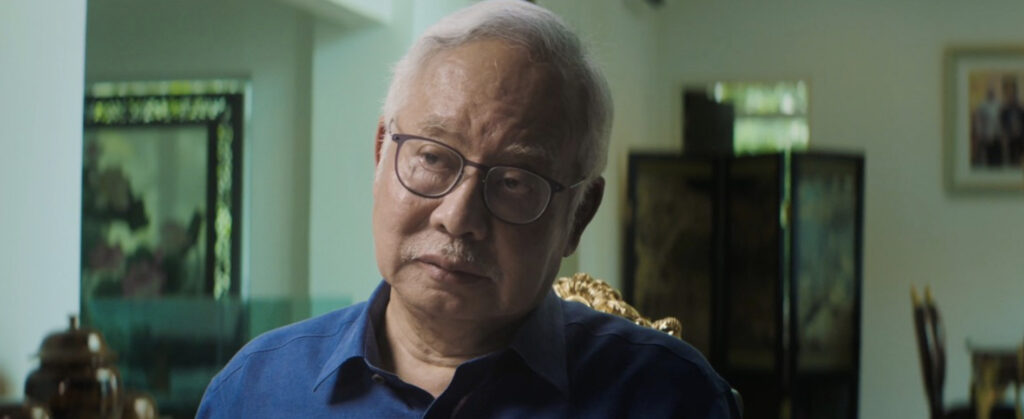
Check out more of Nobuhiro’s articles.
Here’s the trailer of the film.

